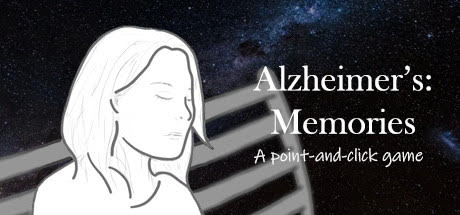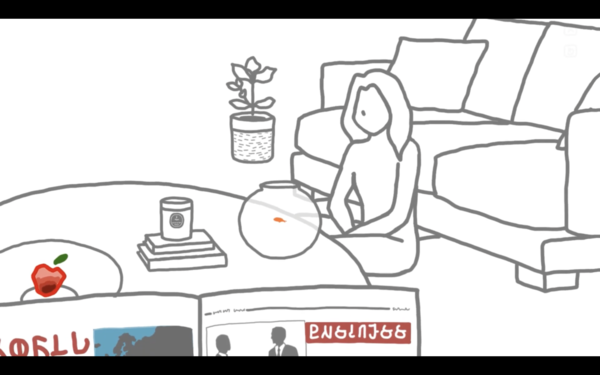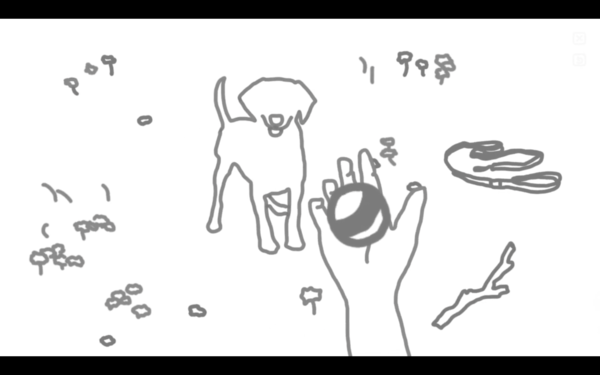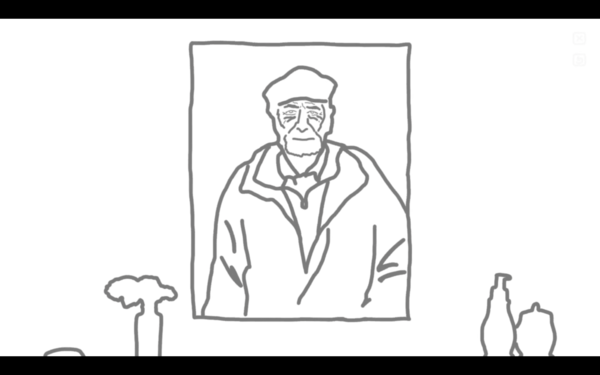Raising awareness through a meaningful video game

ELDERLY PEOPLE are being left behind in South Korea. As the population continues to age, the elderly community is at a greater risk of being diagnosed with diseases such as Alzheimer’s. A study conducted in 2018 reported that up to 10% of the elderly in Korea suffer from dementia, 10% to 20% suffer from depressive disorders, and an estimated 4.2% to 9% had Alzheimer’s[1]. In an effort to raise awareness about memory affecting mental diseases, a group of four Yonsei students took on the task of providing a Korean translation for an indie video game called Alzheimer’s: Memories. The Yonsei Annals sat down with two of the translators, Lim Sung-hee (Sr., UIC, Comp. Lit. & Culture and Intl. Studies) and Carmen Xiaan Zhao (Sr., Dept. of Korean Lang. & Lit.), to learn more about Alzheimer’s: Memories, the reason for translating the game into Korean, and the translation process.
Annals: Can you introduce Alzheimer’s: Memories?
Lim: Alzheimer’s: Memories is an easy, point-and-click, video game created by Gillian Yue, a Dartmouth College student majoring in Computer Science and Digital Arts. Yue started this game about Alzheimer’s disease during a game jam[2] and ended up finishing the game over her summer vacation. The game tells the story of a man who is re-experiencing parts of his life but with difficulties remembering certain things. Yue’s main goal when creating the game was for it to help people be more empathetic towards elderly people, especially those who have Alzheimer’s disease.
Annals: How were you introduced to Alzheimer’s: Memories?
Zhao: We were first introduced to Alzheimer’s: Memories through our class, Creating Creative Contents. The course introduces various non-traditional games with narratives that address mental illness in some way, and we were able to come across this relatively unknown game that is not particularly popular. We are also trying to gain a better understanding about the core issues surrounding mental illnesses and Korean society’s views on the issue before working on a video game of our own related to either depression or Alzheimer’s. One of our assignments was to play Alzheimer’s: Memories, and because a classmate reached out to Yue afterward, we got to hear firsthand about how she got the idea for and executed creating Alzheimer’s: Memories.
Annals: How did the idea to translate Alzheimer’s: Memories come about?
Zhao: After Yue visited our class, our professor suggested forming a team to create a Korean translation since the game was only provided in English and Chinese. This way Korean audiences could play the game, and we, as students, could gain experience from the translation process.

Annals: What impact do you hope your translations will have?
Lim: We hope the translation can help spread awareness about Alzheimer’s disease to the Korean audience and make a significant impact in positively changing Korean society’s perception of Alzheimer’s disease. We also wish people become more aware of video games that deal with meaningful topics like mental health. Using video games as a medium to raise awareness about different issues can be incredibly effective since the interactive nature of games invites gamers to immerse themselves in a “journey” surrounding the topic. I think this is a more effective way to evoke empathy from gamers than simple words. Introducing more people to games like Alzheimer’s: Memories will help create a greater market for creators to make games about serious topics that consumers can appreciate and still enjoy playing.
Annals: What was the process of translating Alzheimer’s: Memories like?
Lim: We worked on translating the game in different parts to split the work, then proofread everything we wrote to make it cohesive. There are not that many words in the game, so we had to be meticulous about choosing the most suitable words. We translated the game using content from both the English and Chinese versions of the game to get the full context of what Yue wanted her words to mean.
Annals: Did you face any difficulties while translating?
Zhao: A problem we faced was how to translate the word “Alzheimer’s” itself. Usually Alzheimer’s is translated as chi-mae, which is actually a han-ja[3] word meaning “stupid.” In Korea this word is an umbrella term used to label all mental illnesses, but we found the word itself is quite insensitive. In recent times, Chinese and Japanese people have changed their word for Alzheimer’s to represent something meaning along the lines of “cognitive inability,” but the regressive term meaning “stupid” is still used in Korea. Instead, we thought using “Alzheimer’s” was more appropriate, especially if we want Korean audiences to learn about Alzheimer’s specifically—not just as a mental illness that’s labeled chi-mae, because these illnesses are all different.

Annals: Did you take the Korean social context into consideration when doing the translation?
Lim: In class we read the book It’s Madness: The Politics of Mental Health in Colonial Korea written by Ted Yoo, our professor, and looked at many other texts and documentaries to learn more about mental illness and how it is viewed in Korea. This research process really helped us understand the importance of a game about Alzheimer’s and how to explain Alzheimer’s within the Korean sociocultural context when translating. The content we learned in class and the research we did was helpful in thinking about Alzheimer’s in general.
Annals: Is there anything else you would like to add?
Zhao: I would like to mention that I have taken Professor Ted Yoo’s classes in the past, but this was the first time the class was open to diverse majors including the Department of Korean Language and Literature, UIC Comparative Literature and Culture, University of California Education Abroad Program (UCEAP), and exchange students. Before this class, we did not have many opportunities to work on projects like our current work translating a published video game. It’s nice to have a class where there are diverse students who can collaborate on real world projects together, and I hope to see more of them in the future. This translation was not a requirement, we simply chose to do it because we wanted to. Out of the classroom context, we can also be creative and work on projects and make something wonderful out of it.
Lim: I also hope there are more classes and opportunities for humanities students and students from other departments to collaborate on projects that can be substantial and directly contribute to society in some way; classes where learning is not just memorization or understanding a text but where we can apply what we learn to the real world. Because this course is project based, we were able to initiate this project and feel genuine passion in trying to help people understand an underrepresented part of our community. Of course, the entire process was even more worthwhile because the game was about spreading awareness about Alzheimer’s disease.

[1] Journal of Korean Medical Science
[2] Game jam: An event where developers of all skill and experience levels create video games with a shared theme over a short period of time
[3] Han-ja: Traditional writing system that consists of Chinese characters

